FAQs

What is the main difference between fiber optic and cable internet?
It is available by primary means of technology which sends out your data. Fiber optic internet uses light impulses via thin glass or plastic fibers. Fiber optic internet provides speed and reliability. On the other hand, cable internet makes use of coaxial cables like those used for cable TV, with good speeds but generally slower and less reliable than fiber optic.
Is fiber optic internet faster than cable internet?
Yes, fiber optic internet is generally faster when compared to cable internet. Fiber optic lines reach speeds as high as 1 Gbps, while the speed of cable internet runs from 10 Mbps to 500 Mbps. Fiber optic also carries symmetrical speeds; thus, it has equal download and upload speeds.
Which is more reliable: fiber optic or cable internet?
Fiber optic internet is generally more reliable than cable internet. It is less prone to interference from weather, distance, or network congestion; performance remains much more stable. While cable internet slowdowns occur during peak times of use because it is a shared medium.
Which one is cheaper: fiber optic or cable internet?
In general, cable internet is more reasonably priced compared to fiber optic internet. With bundle options such as TV and phone services, it becomes really cheap for many households. Fiber optic, on the other hand, has superior speed and reliability to Cable Internet, so it is something that can justify its higher price to some users.
Can I switch from cable internet to fiber optic?
Yes, you can switch over to fiber optic from cable internet if it is available in your area. You need to contact a fiber optic service provider regarding its availability in your area and the installation process.
Which is better to future-proof my connection?
While fiber optic internet seems to be the better bet for really future-proofing your connection with advanced technology that can handle increasing data demands, higher speeds are more sustainable.
Fiber Optic vs. Cable Internet: Which Should You Choose?
With fast-moving and ever-increasing pace in these modern days, having a good internet connection is more of a necessity than a luxury. Be it streaming your favorite shows, working from home, or just surfing the web, the kind of internet connection one chooses makes quite a lot of difference. Fiber Optics and Cable Internet are two popular options available today. So when it comes to fiber optic vs. cable internet, which really stands out?
In this post, we will go into details regarding both fiber optic and cable internet. We'll cover their speed, reliability, cost, and availability, so that by the end, you will be very sure of which option might be perfect for you.
What Is Fiber-Optic Internet?
Fiber-Optic Internet is an advanced technology using the medium of light to transfer data across thin strands made of either glass or plastic fibers. These fibers can transfer massive data at incredible speeds, thus making fiber optics one of the fastest and very reliable connections.
Key Benefits of Fiber Optics:
Speed Unrivaled:
Fiber optic internet runs at speeds reaching as high as 1 Gbps, if not more, in certain locations. For you, this means faster downloads and smoother streaming; generally, improved overall Internet performance.
Consistent Performance:
Compared with some other types of internet, fiber optic is less prone to interference from weather conditions, distances, or peak hours of heavy use. This helps to give a more reliable connection.
Future-Proof Technology:
In a situation in which the demand for internet usage is constantly increasing over time, the fiber optic infrastructure is already structured and fully prepared for sustainable growth in this demand. It's a technology built for the future.
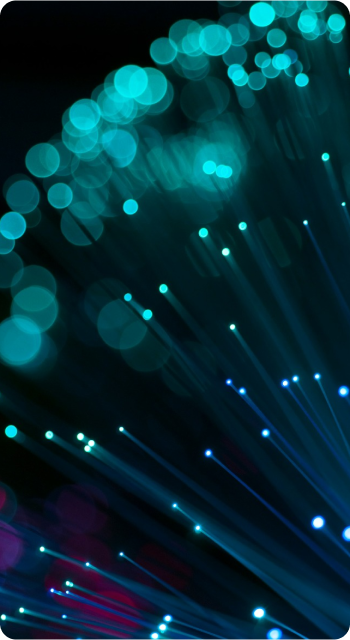
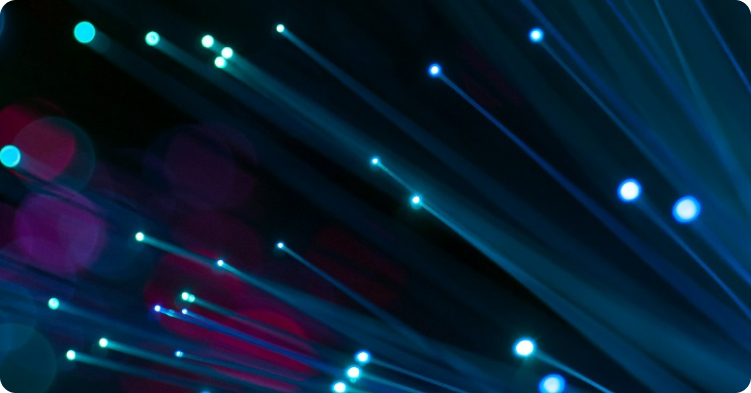
What Is Cable Internet?
Cable internet, on the other hand, uses exactly the same coaxial cables that bring cable TV into most people's homes. This kind of connection is quite widely available and offers high-speed internet access. However, it generally does not achieve the same speed or consistency as a fiber optic line.
Key Advantages of Cable Internet:
Wide Availability:
Most areas, especially those belonging to the urban and suburban categories, have broad coverage of cable internet, giving many people access to the service.
Good Speeds for Most Needs:
Though not very fast like fiber optic, cable internet offers some very good speeds, typically from 10 Mbps to 500 Mbps, more than enough for most daily uses like streaming, gaming, and browsing.
Bundling Options:
Cable internet is sold by a majority of its retailers bundled with TV and even phone services. This can be cost-effective because many people are already subscribed to these.
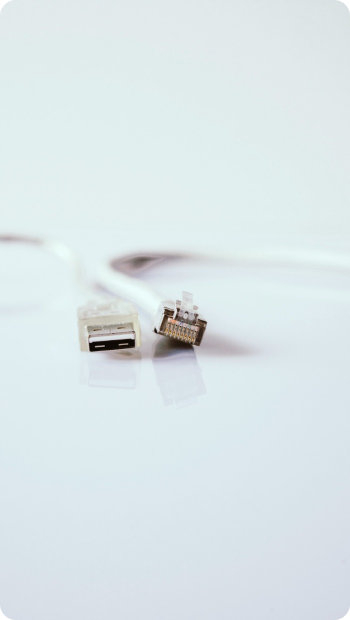
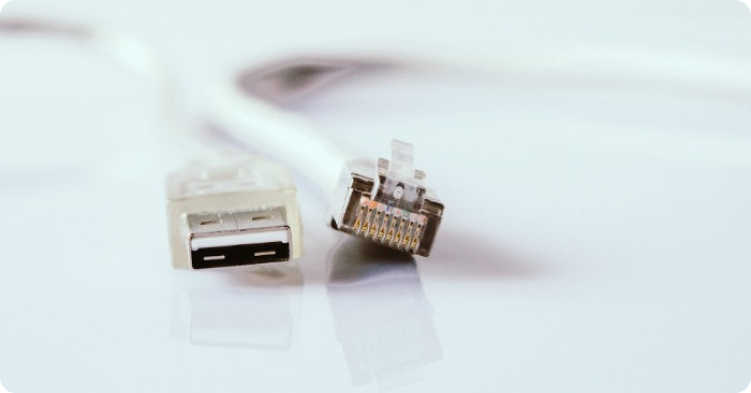
Comparison of Speeds: Fiber Optic vs. Cable Internet
When comparing fiber optic and cable internet in terms of speed, fiber optic clearly wins in this area. Fiber optic connections can offer symmetrical speeds—both download and upload—which is especially useful for activities like video conferencing, uploading large files, or streaming in 4K.
Cable internet, while still very fast, typically comes with asymmetrical speeds where download speeds are higher than upload speeds. This may not be a deal-breaker for many users, but if you frequently upload large files, fiber optic might be the better choice.
Reliability: The Battle of Consistency
Another important factor when choosing an internet connection is reliability. Fiber optic internet, being the most advanced technology, is very reliable. It uses light signals transmitted through glass fibers, which minimizes interference and maintains a steady connection even during high traffic periods.
On the other hand, cable internet can be slower during peak usage times because it is a shared medium. If many of your neighbors are online simultaneously, you might notice a decrease in your internet speed.
Cost: Which One Is Easier on Your Wallet?
Value for money is often a major deciding factor between fiber optic and cable internet. Generally, cable internet tends to be cheaper. Many providers offer bundle deals with TV and phone services, making it a more cost-effective option for households looking to bundle multiple services.
Fiber optic internet, while offering better speed and reliability, usually comes at a higher price. However, costs have been decreasing as the technology becomes more widespread. The higher price often reflects the advanced performance and future-proofing benefits of fiber optic connections.
Availability: Where Can You Get Fiber Optic vs. Cable Internet?
Availability is an area where cable internet often pulls ahead. Since it uses existing cable TV infrastructure, it is available in more locations than fiber optics. This makes it the default choice for people living in areas where fiber optics have not yet reached.
Fiber optic internet is still expanding in coverage, with availability mostly in urban regions and emerging in suburban areas. As the infrastructure develops, more locations will be able to benefit from fiber optic services.
Which One Should You Choose?
So, what should be your pick when it comes down to fiber optic vs. cable internet? Well, that entirely depends on your needs and circumstances.
Pick Fiber Optics If:
- You frequently engage in video conferencing, gaming, or streaming your favorite shows in 4K—all of which require very fast and reliable internet.
- You are a remote worker who needs reliable upload and download speeds.
- You're looking for a future-proof solution for your internet.
Pick Cable Internet If:
- You live in an area where fiber is not an option.
- You are looking for a relatively inexpensive option with decent speeds for everyday use.
- You want to bundle TV and phone services along with your internet.
Final Thoughts
Both fiber optic and cable internet have their own strengths, and in the end, the best choice is determined by your unique needs. If speed and reliability are at the top of your list, and you don't mind spending a bit more, then fiber optics might be the right choice for you. If you're looking for a more cost-effective option with broader availability, then cable internet is likely the better choice.
As technology continues to evolve, both fiber optic and cable internet will see further improvements. Whichever option you choose, make sure it fits your online habits, budget, and future needs.
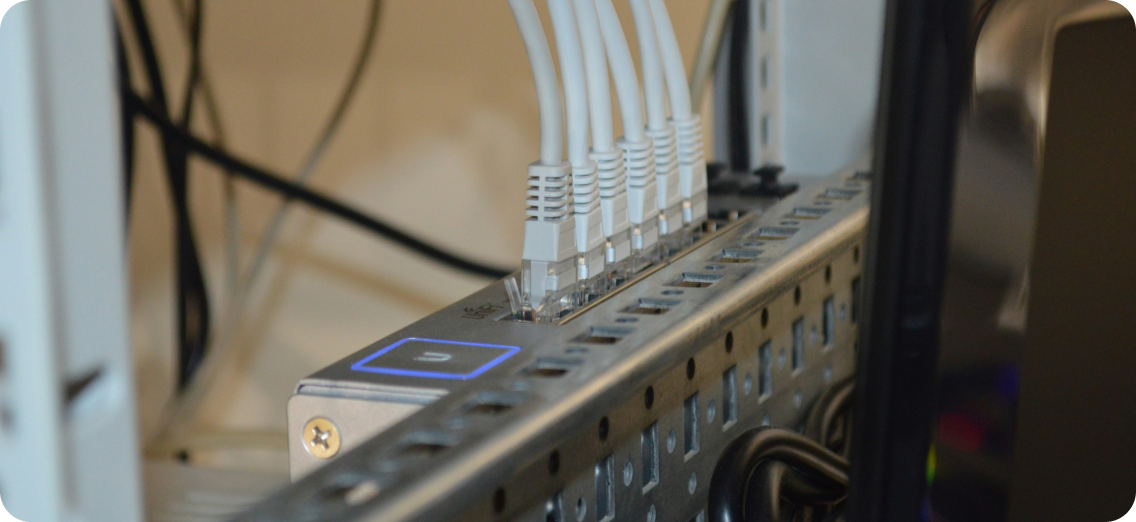
 What is fiber optic internet?
What is fiber optic internet?



